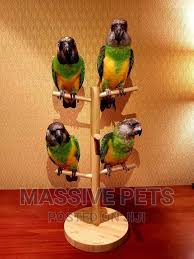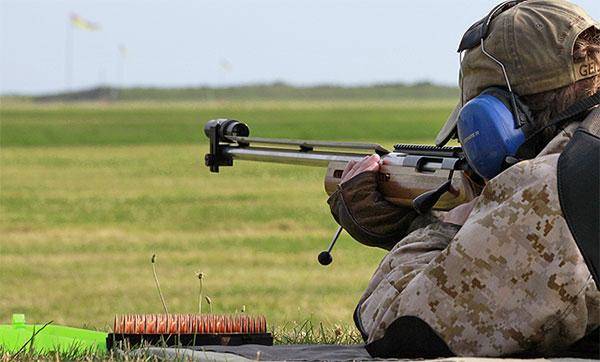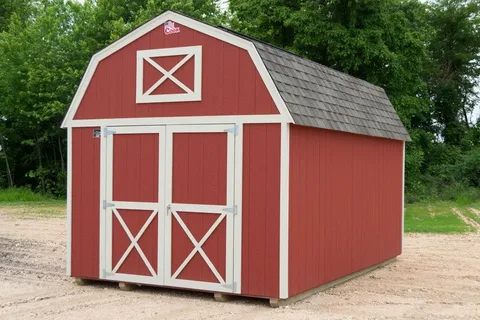Senegal Parrot: A Comprehensive Guide to Caring and Buying the Perfect Feathered Companion

Strong 8k brings an ultra-HD IPTV experience to your living room and your pocket.
The senegal parrot known for its charming personality and vibrant appearance, is a favorite among bird enthusiasts and pet owners. If you're considering adding this captivating bird to your home, this comprehensive guide will help you understand everything you need to know about Senegal parrots, including their characteristics, care requirements, and where to find a Senegal bird for sale.
Table of Contents
Introduction to the Senegal Parrot
Origin and Habitat
Physical Characteristics
Personality and Behavior
Why Choose a Senegal Parrot as a Pet?
Pros of Owning a Senegal Parrot
Potential Challenges
Senegal Parrot Care Requirements
Diet and Nutrition
Housing and Environment
Exercise and Mental Stimulation
Health and Veterinary Care
Training and Socializing Your Senegal Parrot
Basic Training Tips
Socialization Techniques
Dealing with Behavioral Issues
Senegal Parrot Breeding and Lifespan
Breeding Habits and Nesting
Lifespan and Aging Considerations
Finding a Senegal Bird for Sale
Reputable Breeders vs. Pet Stores
Adoption and Rescue Options
What to Look for in a Healthy Senegal Parrot
Cost of Owning a Senegal Parrot
Initial Purchase Price
Ongoing Expenses
Conclusion: Is a Senegal Parrot Right for You?
Assessing Your Readiness
Making an Informed Decision
1. Introduction to the Senegal Parrot
Origin and Habitat
The Senegal Parrot (Poicephalus senegalus) hails from the woodlands and savannas of West Africa, specifically countries such as Senegal, Mali, and Guinea. This bird is well-adapted to its natural environment, where it lives in small flocks and feeds on a variety of fruits, seeds, and flowers.
Physical Characteristics
Senegal Parrots are small to medium-sized birds, typically measuring around 9 inches (23 cm) in length. They have a distinctive green body, with a gray head and yellow-orange belly that forms a "V" shape across their chest. Their bright, engaging eyes and stout beak add to their appealing appearance.
Personality and Behavior
Senegal Parrots are known for their playful and inquisitive nature. They are intelligent, affectionate, and can form strong bonds with their owners. These parrots are relatively quiet compared to other parrot species, making them a suitable choice for apartment dwellers. However, they can be vocal when excited or seeking attention.
2. Why Choose a Senegal Parrot as a Pet?
Pros of Owning a Senegal Parrot
Compact Size: Senegal Parrots are smaller than many other parrot species, making them easier to house and manage.
Affectionate Nature: They are known for their strong bonds with their owners and enjoy spending time interacting and cuddling.
Long Lifespan: With proper care, a Senegal Parrot can live up to 30 years or more.
Low Noise Level: They are not as noisy as some larger parrots, which makes them ideal for those who prefer a quieter pet.
Trainability: Senegal Parrots are intelligent and can learn a variety of tricks and commands.
Potential Challenges
Need for Attention: These parrots require daily interaction and mental stimulation to prevent boredom and behavioral issues.
Beak Care: Senegal Parrots have strong beaks that can cause damage if not properly managed through training and providing appropriate toys.
Potential for Aggression: If not properly socialized, they can become territorial or aggressive, especially during mating season.
3. Senegal Parrot Care Requirements
Diet and Nutrition
A balanced diet is crucial for the health and well-being of a Senegal Parrot. Their diet should consist of:
High-Quality Pellets: These should form the basis of their diet and provide essential vitamins and minerals.
Fresh Fruits and Vegetables: Include a variety of fruits like apples, berries, and vegetables like carrots, broccoli, and leafy greens.
Nuts and Seeds: Offer sparingly as treats due to their high-fat content. Almonds, walnuts, and sunflower seeds are good options.
Fresh Water: Clean, fresh water should be available at all times.
Housing and Environment
Senegal Parrots require a spacious cage that allows them to move around comfortably. Key considerations include:
Cage Size: The minimum size should be 24 x 24 x 24 inches, but larger is always better.
Perches: Provide a variety of perches of different sizes and textures to promote foot health.
Toys: Include a range of toys for chewing, foraging, and puzzle-solving to keep them mentally stimulated.
Safe Environment: Avoid drafts, direct sunlight, and exposure to harmful fumes or chemicals.
Exercise and Mental Stimulation
senegal bird for sale are active and curious birds that need regular exercise to stay healthy. Here are some ways to ensure they get enough physical and mental stimulation:
Out-of-Cage Time: Allow your parrot to spend several hours a day outside the cage to explore and interact with the family.
Interactive Toys: Use foraging toys, puzzle feeders, and chew toys to engage their minds.
Training Sessions: Regular training sessions can help reinforce positive behavior and strengthen the bond between you and your parrot.
Health and Veterinary Care
Regular check-ups with an avian veterinarian are essential for your Senegal Parrot’s health. Common health issues include:
Feather Plucking: Often a sign of stress or boredom.
Respiratory Infections: Can be caused by poor air quality or drafts.
Obesity: Can occur if their diet is too high in fat or they are not getting enough exercise.
4. Training and Socializing Your Senegal Parrot
Basic Training Tips
Start Early: Begin training as soon as your parrot is comfortable in its new environment.
Use Positive Reinforcement: Reward desired behaviors with treats, praise, or toys.
Keep Sessions Short: Training sessions should be no longer than 10-15 minutes to prevent frustration.
Be Consistent: Use the same commands and cues every time to avoid confusion.
Socialization Techniques
Gradual Introduction: Introduce your parrot to new people and environments slowly to avoid overwhelming them.
Daily Interaction: Spend quality time with your parrot every day to build trust and companionship.
Enrichment Activities: Provide a variety of toys and experiences to prevent boredom.
Dealing with Behavioral Issues
Biting: If your Senegal Parrot starts biting, try to understand the cause, such as fear or territorial behavior, and address it through training and positive reinforcement.
Screaming: Excessive screaming can be a sign of boredom or the need for attention. Ensure your parrot is adequately stimulated and engaged.
5. Senegal Parrot Breeding and Lifespan
Breeding Habits and Nesting
Breeding Senegal Parrots can be challenging and requires specific conditions:
Mating Season: Typically occurs during the dry season in their native habitat.
Nesting: Provide a suitable nest box with appropriate bedding material.
Diet: Increase the intake of protein and calcium for breeding pairs.
Lifespan and Aging Considerations
Senegal Parrots can live for 30 years or more with proper care. As they age, they may develop certain health issues, such as:
Arthritis: Can be managed with medication and supportive care.
Vision Loss: Regular check-ups can help monitor and manage age-related conditions.
6. Finding a Senegal Bird for Sale
Reputable Breeders vs. Pet Stores
When looking for a Senegal bird for sale, it’s crucial to choose a reputable source:
Reputable Breeders: Breeders who specialize in Senegal Parrots and prioritize the health and well-being of their birds. They often provide health guarantees and post-purchase support.
Pet Stores: While some pet stores offer healthy birds, there is a risk of poor breeding practices and inadequate socialization.
Adoption and Rescue Options
Consider adopting a Senegal Parrot from a rescue organization or bird sanctuary. Many parrots need a second chance at a loving home, and adoption can be a rewarding experience.
What to Look for in a Healthy Senegal Parrot
Clear Eyes and Nostrils: Look for signs of respiratory issues or discharge.
Active and Alert: A healthy parrot should be curious and responsive.
Smooth Plumage: Feathers should be well-groomed and vibrant.
Healthy Weight: The bird should feel neither too thin nor overweight.
7. Cost of Owning a Senegal Parrot
Initial Purchase Price
The cost of a Senegal Parrot can vary widely based on factors such as age, color mutation, and breeder reputation. Generally, you can expect to pay between $400 and $800 for a hand-raised, well-socialized bird.
Ongoing Expenses
Food and Treats: High-quality pellets, fresh fruits, and vegetables.
Cage and Accessories: Initial investment in a suitable cage, toys, and perches.
Veterinary Care: Annual check-ups and potential
Note: IndiBlogHub features both user-submitted and editorial content. We do not verify third-party contributions. Read our Disclaimer and Privacy Policyfor details.







